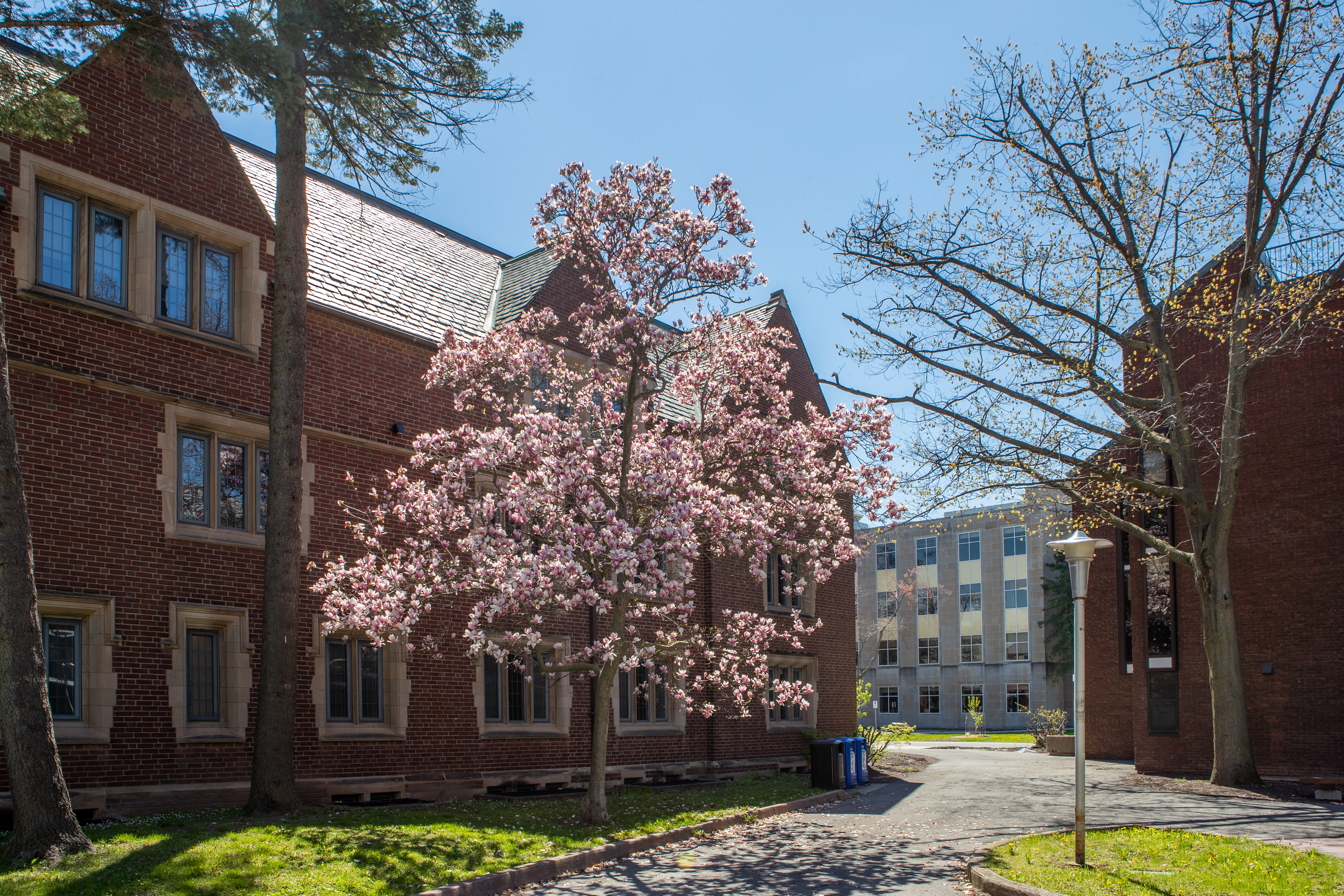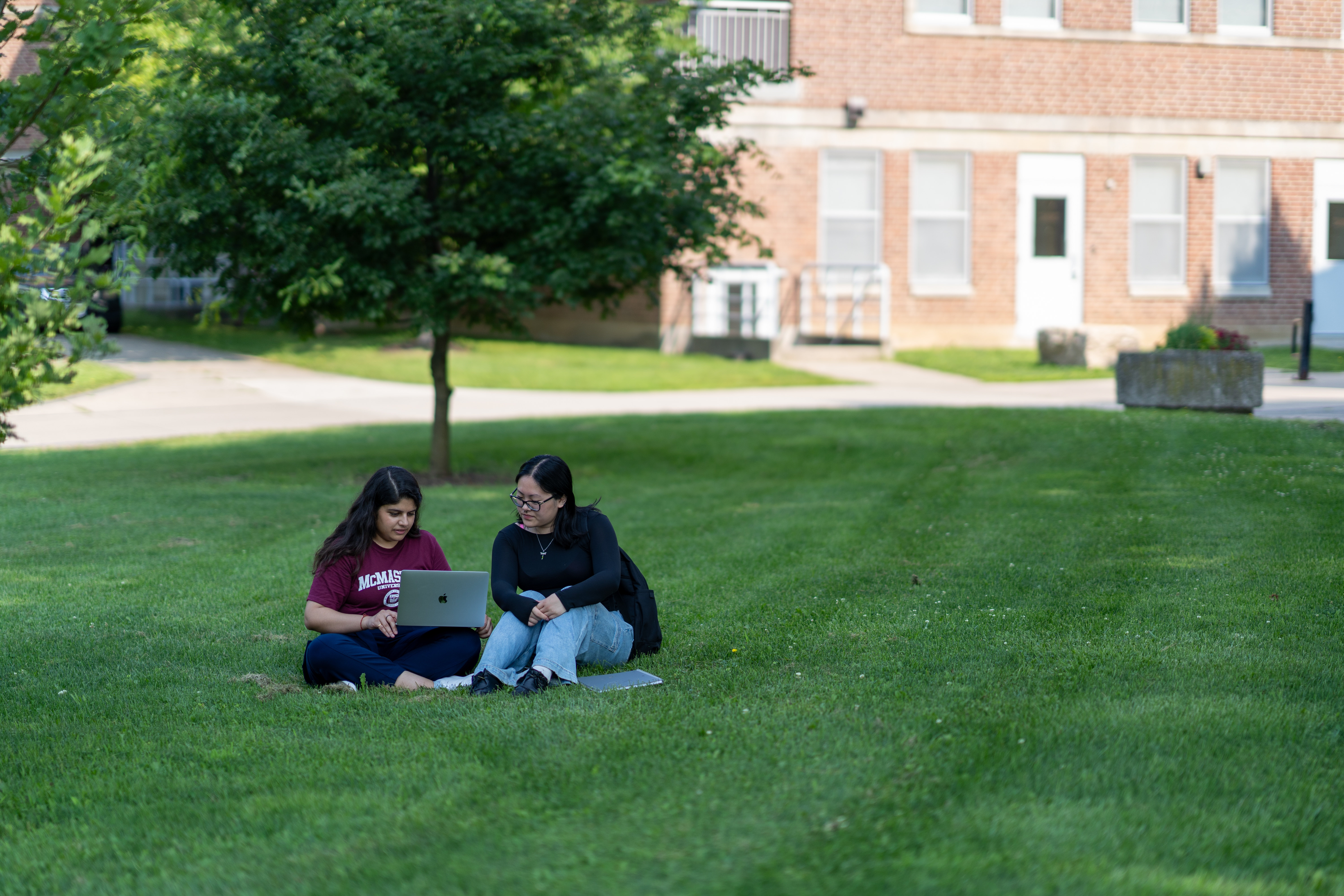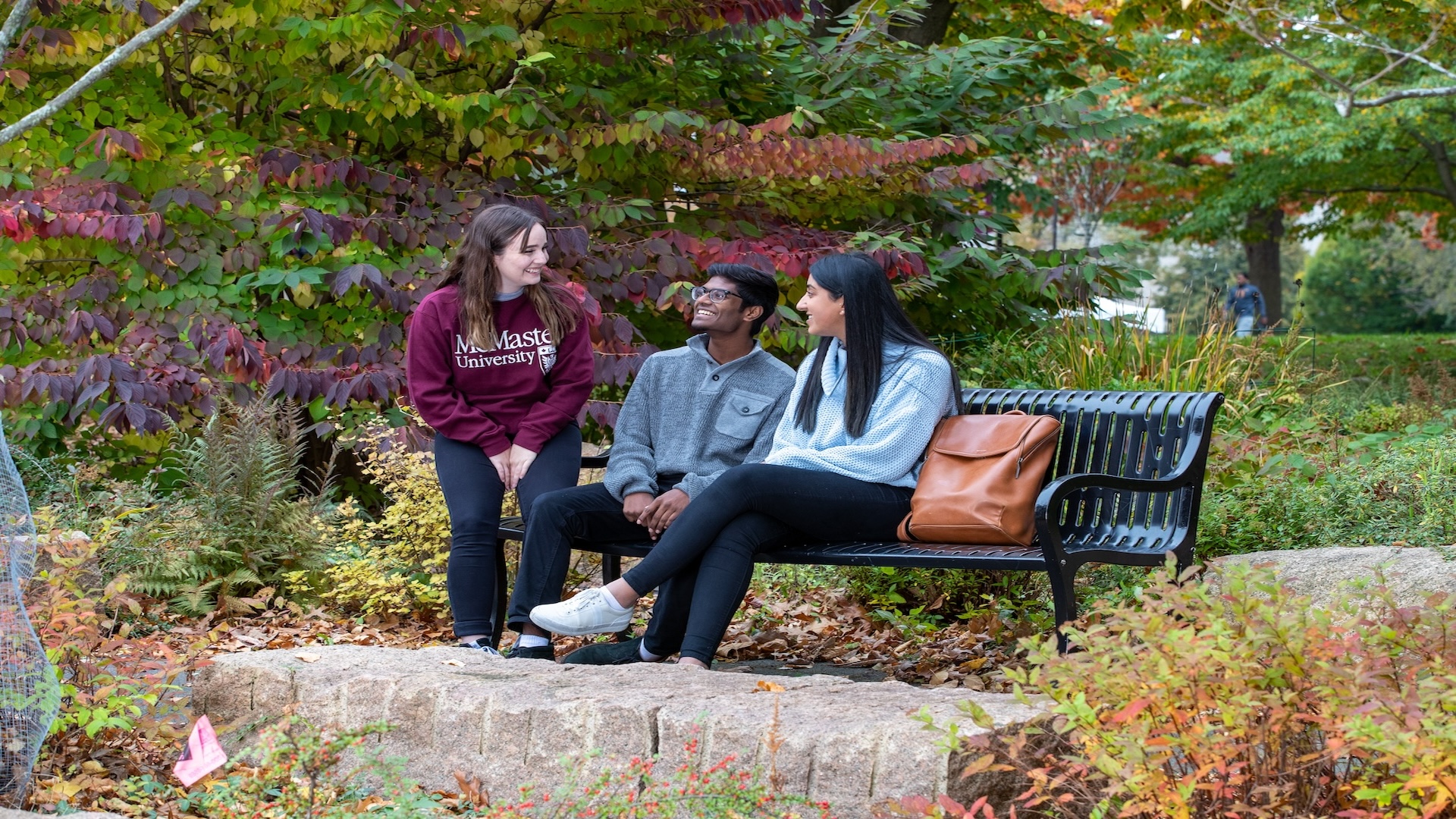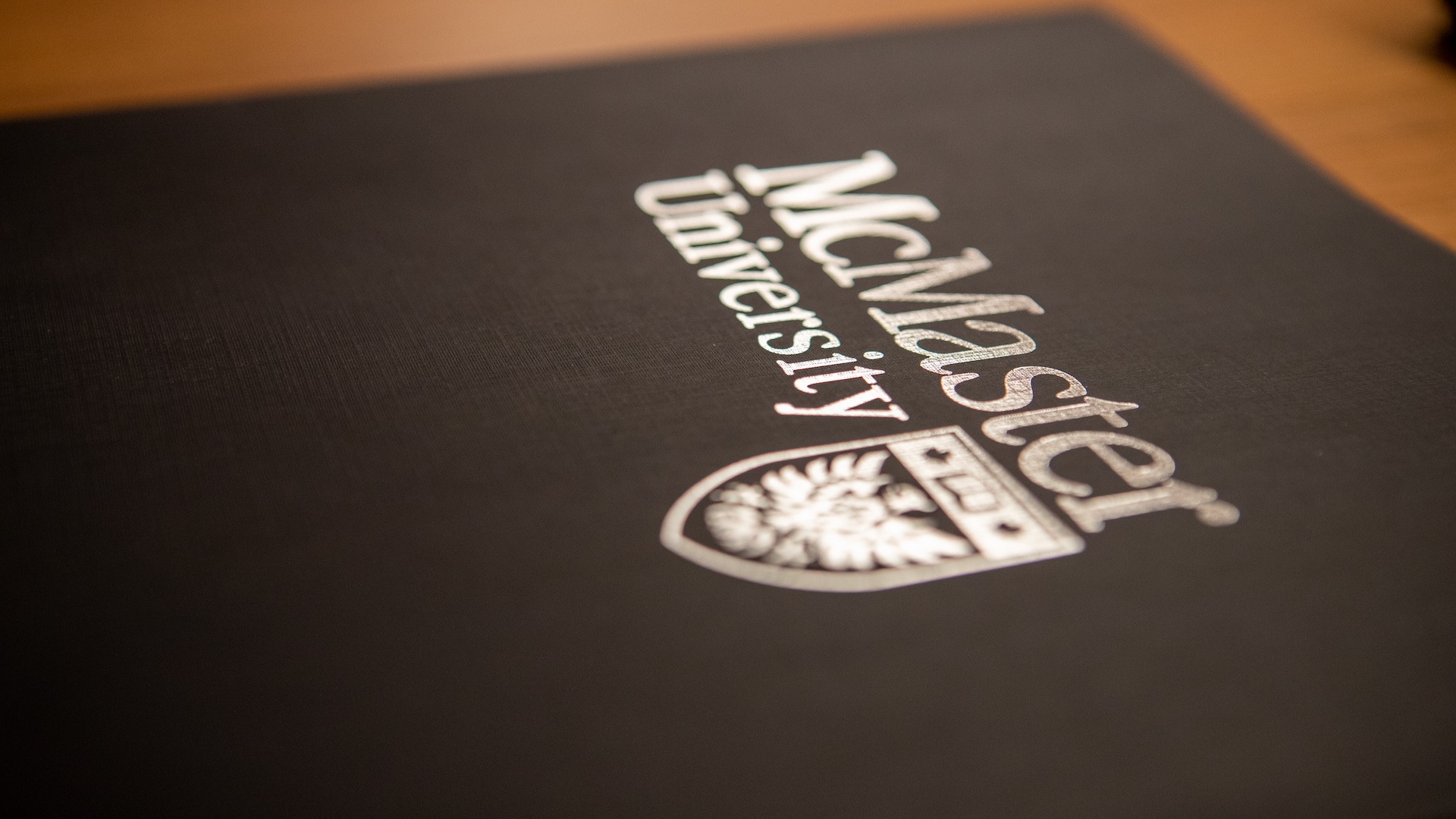Top 5 Ways to Keep Residence Safe
- Lock your doors whenever you are not in your room. A small action can prevent big problems.
- Escort your guests rather than allowing them to wander freely. Their actions are your actions.
- Don’t let people ‘tailgate’ after you when entering the front door. Do you know who just followed you in?
- Approach strangers on your floor & report anything suspicious to a Community Advisor or Residence Life Area Coordinator.
- Do not prop open your room door or any building entrance door.

Residence Building Features
Just like the locks and smoke detectors at home, residence buildings are outfitted with a variety of equipment and systems to keep students safe throughout the year.
- All buildings are equipped with proximity-access card readers which only unlock the main doors of their specific building to cardholders.
- All buildings have 24/7 electronic surveillance cameras in a variety of non-intrusive areas.
- All rooms are equipped with industrial-grade locking systems.
- Resident lock-out keys are only provided to students when matched against photo ID at our 24/7 Service Centres.
- All first-floor window are equipped with professional grade re-enforced security screens.
- All buildings are equipped with smoke and heat detectors, fire extinguishers, hoses and alarms, which are all checked regularly.

More Ways to Stay Safe
Student Walk Home Attendant Team (SWHAT) 905-525-9140 ext 27500 SWHAT is a student-run volunteer organization dedicated to improving personal safety on campus. Volunteer teams (one male & female) will walk anywhere within a 30-minute radius from campus or take the bus with students traveling downtown Hamilton. If you’re interested in learning more, click here.
Emergency First Response Team (EFRT) 905-522-4135 EFRT is a volunteer organization, on call 24 hours a day, 7 days a week during the school year. They respond to any medical emergency on campus in a team of 3 responders, with an impressive response time of 1-2 minutes. Trained in both the Red Cross’ Emergency First Responder and Toronto Ambulance’s International Trauma Life Support courses, these responders come equipped with oxygen, an automated external defibrillator (AED), and EpiPens. If you’re interested in learning more, click here.
McMaster Security Services 905-522-4135 McMaster Security Officers are sworn Peace Officers – appointed under the authority of the Ontario Police Services Act. Their appointments give them the powers of a Peace Officer and enable them to enforce the Criminal Code of Canada, Federal and Provincial statutes and Municipal by-laws on the University Campus via foot, bike, and car. If you’re interested in learning more, click here.

Safety Initiatives in Residence
There are several proactive programs in place to ensure the on-going safety of residence students. These include initiatives such as:
- Weekly fire tests and randomized building evacuation drills to evaluate preparedness
- Nightly Residence Life Staff coverage rounds between the hours of 9 pm to 8 am
- Emergency Pager number available for residents during Residence Life Staff coverage
- Professional Residence Life Area Coordinators are on-call 24/7 to respond to emergency/crisis situations
- An extensive Guest/Escort Policy based on accountability, permission, and courtesy
- Annual Inter-Residence Council Safety Audit completed in conjunction with Housing & Conference Services
- Clearly defined Emergency Procedures which are posted and discussed with residents after move-in
- Building access points restricted after 10 pm to streamline traffic patterns to main building entrances

Monthly Fire Alarm Tests
Fire alarm systems are tested every month – ring – stop – ring again and you are not required to leave the building. If ringing persists, it is a REAL alarm and you must leave the building. Failure to do so is a fineable violation of the Residence Code of Conduct (RCC).
Housing & Conference Services conducts full building evacuation drills once during the academic year. Upon hearing a fire alarm or being notified of a fire all occupants must, if safe to do so, immediately evacuate the building. Occupants must understand that failure to do so is a major offence under the Residence Code of Conduct.
Fire Alarm Testing Times
All Residence Buildings: the first full week of every month on Tuesday, between 1 and 2:30 pm.
Fire Emergency Procedures
- If safe to do so, leave the building immediately, using the nearest and safest exit, taking your keys and closing doors behind you to contain the spread of smoke and fire.
- Sound the alarm by activating a manual pull station. They are located at each door leading to the stairwells.
- Once outside, move to the closest parking lot to allow clear access for emergency personnel and vehicles.
- Advise the McMaster Security Officer of any trapped or endangered occupants requiring assistance in evacuating.
If you hear an alarm or are notified of a fire:
- If safe to do so, leave the building immediately, using the nearest and safest exit, taking your keys and closing doors behind you to contain the spread of smoke and fire. Activate the alarm if not already activated.
- Once outside, move to the closest parking lot to allow clear access for emergency personnel and vehicles.
- Advise the McMaster Security Officer of any trapped or endangered occupants requiring assistance in evacuating.
IF YOU HAVE TO REMAIN IN THE BUILDING If, due to excessive smoke, heat or fire the exit corridors or stairwells cannot be used you should remain in your room/apartment or take refuge with others in another room/apartment.
- If unsafe to leave the building, call McMaster Security at 905-522-4135 and advise the dispatcher of your location. Hang a sheet out the window to alert emergency personnel of your location.
- Keep smoke from entering the room/apartment by closing the door and using wet towels, cardboard, paper and/or duct tape to seal around the doors, vents and air ducts.
- Move to the most protected area of the room/apartment, opening the window for fresh air.
- Keep low to the floor, where the air is cleanest.
- Listen for instructions from authorities as given over a bullhorn or voice communication system.
DO NOT USE THE ELEVATORS — DO NOT PROCEED TO THE ROOF. Every residence room contains a heat detector that is wired into the building’s fire system and a smoke detector that will pick up any traces of smoke in the student’s room only. The corridors and common areas also contain these devices, and both are connected with the building’s main fire system. These systems and devices are individually tested once per year.
The smoke detectors are very sensitive and things such as dust from vacuums, hair spray, powder, perfume/cologne spray will activate them. To prevent false alarms, it is imperative that nothing of this nature be sprayed at them. Any student who is temporarily unable to exit the building during an emergency (i.e. broken leg) should inform the Service Centre. This information will be passed onto the proper authorities to help evacuate these residents in case of an emergency.
All residence bedroom and common doors (i.e. common room and stairwell doors) are equipped with door closers, excluding Bates/Keyes bedroom doors, to ensure that the door always returns to the closed position. These closers and other doors with closers must not be removed or tampered with.
Propping doors open is in violation of the Ontario Fire Code as well as the Residence Code of Conduct and will result in an offence. As per the Residence Code of Conduct, lifting the cover over a fire pull station for purposes other than to activate the building fire system for an actual fire is a violation of the RCC.
Falsely activating a fire alarm is punishable by a fine or imprisonment. All occupants are responsible for ensuring the following:
- That exit corridors and stairwells are kept clear.
- That flammable or combustible liquids and gases, explosives, fireworks, firearms, ammunition or propellant explosive are not brought into or stored in residence buildings.
- That the volume of posted paper on common area walls and doors is kept to a maximum of 20% of the surface (2’ X 3’ piece with 4’ of clearance on all sides).
- That combustible material such as newspaper, cardboard and furniture does not accumulate anywhere in the buildings, creating a fire hazard.

